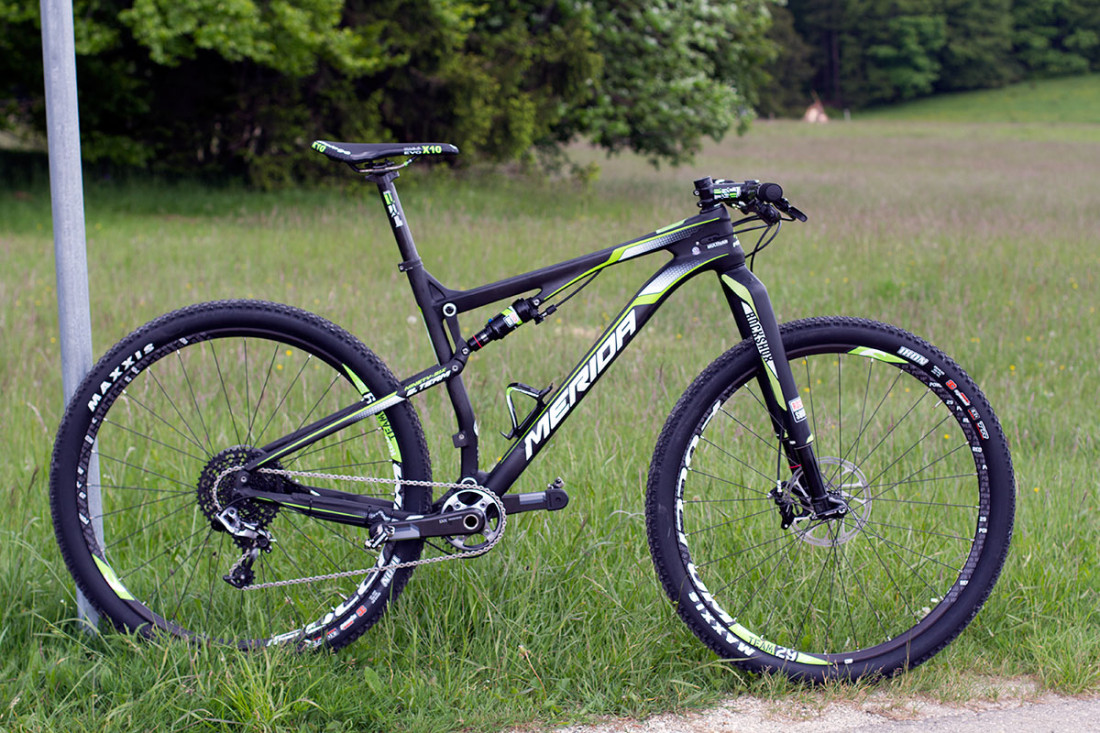The last UCI XCO World Cup in Albstadt wasn’t just a showcase of sporting talent and German sporting enthusiasm, but it was also the location for Merida’s launch for their updated short travel cross-country bike.
While Merida were pretty quick to get into the big wheeled game with the Big Nine and Big Ninety Nine, the industry has changed and 27.5″ wheels and 29″ wheels are both fit for purpose for XC and marathon racing. Enter the 2016 Merida Ninety Six, utilising size-specific wheel sizing, so the XS and Small use 27.5″ wheels, and the large and extra large use 29″ wheels. If you’re a ‘medium’ size, you’ll have the choice between the two wheel sizes. Merida aren’t the only brand to use such a system. Yeti and Trek also do.

The full carbon frame has been designed from the ground up, with revised geometry to get the most out of each wheel size’s handling attributes.
Visually, the bike is noticeably different to the Big Ninety-Nine thanks to the shock being mounted below the top tube, and not in front of the seat tube, actuated by a faux-bar linkage. This is similar positioning to other brands, as it means the pivot locations aren’t dictated by frame size in the same way. So, different sized bikes don’t have to have suspension compromises. The suspension is designed around a falling and then rising rate. So a supple initial stroke, that ramps up a lot to preserve the end of the travel. It could also mean a lot of bob depending on setup, but most models seemed to be specced with remote lock out.

Travel for the 29″ variant is 96mm (it’s in the name, right?) but the 27.5″ wheeled bikes get 108mm. This isn’t just generosity for short people, but it is aimed to get the ride quality very similar, to help the smaller wheels roll over more, which the larger wheels do thanks to their size.

These aren’t trail bikes, and Merida has used feedback from their Multivan-Merida athletes to get the handling more sharp. With many XCO courses getting rougher and more technical, the need for an agile, light and efficient full-suspension bike is greater than ever. By shortening the top tube and wheelbase, and lowering the bottom bracket, Merida have met the team demands.


While most will use a 1×11 setup, there’s room for a direct mount front mech, and the fully internal cabling means you can neatly run 1x or 2x, Di2, or Fox electronic lockout. The bikes will be available in many different models, so you’ll be best to check with your Merida dealer about local pricing and availability.

Post race comments from the Merida-Multivan team:
